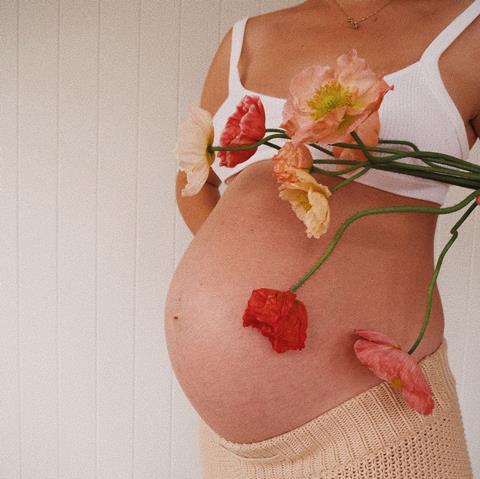‘This year’s World Health Day campaign also urges us to think beyond the delivery room. The importance of the mother’s wellbeing does not end after childbirth. Many women experience postpartum depression, anxiety, trauma and physical complications long after their babies are born,’ says Dr Sarah-Louise Hurst.

Each year on 7th April, we celebrate World Health Day, a moment to reflect on the state of global health and advocate for positive change. This year’s theme is Healthy Beginnings, Hopeful Futures and will kick off a year-long campaign urging governments and the health community to double down on ending preventable maternal and newborn deaths and to prioritise women’s wellbeing.
As a Christian perinatal psychologist, this year’s theme is close to my heart because I believe every mother and baby are fearfully and wonderfully made.
As a Christian perinatal psychologist, this year’s theme is close to my heart because I believe every mother and baby are fearfully and wonderfully made. My work, focusing on championing maternal and newborn health reflects both my faith and my commitment to nurturing strong, hope-filled foundations for families. Compassionate care and support for mothers and babies is most essential from birth onwards.
READ MORE: Looking after your emotional health as a mother
Research from multiple fields has highlighted that the first 1,000 days of life, from conception to a child’s second birthday, are a critical period for shaping brain development, physical health, and emotional wellbeing. A mother’s health, nutrition, mental wellbeing during pregnancy and early parenting play a crucial role in her baby’s development. Investing in nurturing care for both mother and child during this time is essential in laying the foundation for positive lifelong outcomes.
The birth of a child is a sacred event, a reminder of God’s gift of life.
The birth of a child is a sacred event, a reminder of God’s gift of life. Yet, for too many women around the world, pregnancy and childbirth remain dangerous. Around 2.3 million newborns die every year, often from preventable causes like infections, birth complications, and preterm birth. According to the World Health Organisation, nearly 800 women die every day from preventable causes related to pregnancy and childbirth. Low and middle income countries account for 99% of these deaths.
READ MORE: It’s time for your health MOT
While maternal mortality in the UK is low, Black women are four times more likely to die in childbirth and Asian women twice more likely than white women. An inquiry by support organisation Birthrights called for action to be taken including creating inclusive workforce cultures and introducing a commitment to tackle racism in the maternity system. They highlighted that women of colour deserve support to make informed choices throughout their pregnancy and after childbirth. As followers of Christ, we too are called to advocate for justice and to care for the vulnerable (Micah 6:8, James 1:27).
Caring for maternal health is more than simply a medical, or social issue, it’s also a Kingdom issue. Jesus often ministered to women, showing deep compassion for their physical and emotional well-being. As Christian women in professional spaces, we have a unique opportunity to support maternal and newborn health through our work, prayers, and influence. The long-term health of mothers matters.
READ MORE: Is the Government finally prioritising women’s health?
This year’s World Health Day campaign also urges us to think beyond the delivery room. The importance of the mothers well-being does not end after childbirth. Many women experience postpartum depression, anxiety, trauma and physical complications long after their babies are born.
As a psychologist, I see firsthand the struggles mothers face, the exhaustion, the self-doubt, the silent battles with distress. Birthing women deserve high quality care that addresses both their physical and emotional needs. Services and organisations that listen to women’s experiences and support families are key for healthy beginnings and hopeful futures.
As believers, we know that God walks with us in our most vulnerable moments. Isaiah 40:11 beautifully describes his care: “He tends his flock like a shepherd: He gathers the lambs in his arms and carries them close to his heart; he gently leads those that have young.” As Christians and as churches we are called to extend that same compassion to one another as we go through the journey of motherhood.
How Can We Respond?
* Check out the World Health Organisation website for ideas.
* Support other women: Whether through mentoring, encouraging a new mother, creating supportive spaces in our church, or advocating for better workplace policies, we can create environments where maternal health is valued and protected.
* Pray and take action: Let’s lift up mothers and babies around the world in prayer, but also take practical steps, supporting charities, speaking out for maternal healthcare and educating ourselves.
This World Health Day, I celebrate because every mother and baby is precious in God’s sight. Healthy Beginnings, Hopeful Futures is not just a theme - it’s a calling. Together, as Christian women, let’s honour God by ensuring that every mother and child receives the care they deserve.

































No comments yet